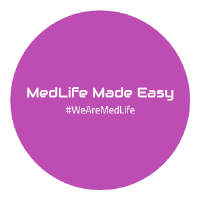Let's Talk: Informed Consent
- Alt Admin

- Jun 23, 2018
- 3 min read
Been a while, hasn't it?
Never fear, for we are back; with a bang!
First off, it's important for us to think of Consent as a process, not just "filling out a form".
And as Juniors, if you feel out of your depth, it's fine to ask a Senior to do it; and then observe so that you are better informed for the next time. This is because failure to properly gain consent is a significant medico-legal issue, one that can potentially land you in hot water.
So, before going further; let's clear up some Survival tips:
Always act in the patient's best interest.
Make the consent as specific as possible for the Procedure at hand.
It is within patient's rights to refuse treatment.
Obtain consent from parents (in the case of children).
ALWAYS record whatever you discussed with the patient, in the notes. [An old adage: if it isn't written, it wasn't done! This covers you Medico-legally]
Consent is founded on the principle of autonomy – it must be given freely by a competent patient voluntarily making an informed decision. Hence, patients must be given an explanation of the investigation, diagnosis or treatment, an explanation of the probabilities of success, or the risk of failure or any harm associated with the different options for treatment, and no treatment. The patient should always be given sufficient time to ask questions and as much time as possible to make a decision. Consent is invalid if it is obtained under duress.
All of this to say that in order for a patient to make a decision, they must have all the facts, and they must understand what they're dealing with: this is why it's termed Informed Consent. As the Doctor, you can gauge the patient's capacity for Consent, and even if they are lacking, you can then ensure that you involve them as much as possible in choices that will ultimately impact on their lives.
BELOW: A sample case of Consent taking for y'all to examine. Then, an example of Informed Consent, and finally a little extra something.
Dr X is in his first week as an ENT Resident. He is sitting at the desk in the ward filling in forms, when a nurse tells him that there is a patient going to theatre in the next few minutes and the consent form is missing from his notes. She insists that the consultant “will get very cross” if the
patient turns up in theatre without all the appropriate documentation.
The nurse mentions that the patient’s operation has already been cancelled once, and it would be terrible if it happened again. Dr X explains that he has never consented a patient for a tonsillectomy before, and doesn’t think he should do it. But the nurse is insistent, saying
“it’s only a tonsillectomy, not rocket science”.
Dr X rightly ignores the pressure, and hurries to theatre to ask one of his senior colleagues to sort out the consent form. His senior agrees, takes the patient’s consent, and the operation goes ahead on time.
More links like this can be found at the Medical Protection Society (MPS) Website.
Say, now, for argument's sake, you were consenting a patient for a Sub-total hysterectomy.
To obtain informed consent (after confirming her Demographics), you would need to explain to the patient that this means she would no longer be able to become pregnant (ask if she has already completed her family) and ask what the reason is for her surgery. Explain the benefits of the operation (bleeding from Fibroids will stop) and the commensurate risks: damage to bladder (~4 in 1000), bowel (~4 in 1000), ureters (~7 in 1000), bleeding which requires transfusion; death (~32 in 100,000) and so on. You tell her about having to be warded before and after, and precautions that will be taken (against Infection, DVTs etc) and then explain the difference between a Total and Sub-total procedure (Cervix is left inside). You assure her that the ovaries will not be removed (unless diseased), hence she will go into menopause naturally. You advise her as to the nature of major surgery which requires Anaesthetics, who will also have to assess her.
Finally, you ask if everything you said was clear, and if she has any questions for you. A nice touch is to offer her reading material about what you discussed, and even relevant support groups.

Extras:
Looking for a solid Text-based RPG adventure?
Check these out!
Follow this link to download (https://drive.google.com/drive/folders/1T__Z09RlI2YIDMDXRveKHWGRTbskXHQM?usp=sharing)






Comments